Search Results
Showing results 1 to 11 of 11
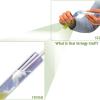
How to Extract DNA From Anything Living
Source Institutions
In this genetics activity, learners discover how to extract DNA from green split peas.

To Taste or Not to Taste
Source Institutions
In this biology activity (page 8 of the PDF), learners will determine whether they are "tasters" or "non-tasters", test selected individuals from their families and peer group for the trait, and chart
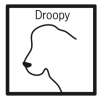
A Recipe for Traits
Source Institutions
In this genetics activity, learners create and decode a “DNA recipe” for a dog by randomly selecting strips of paper that represent DNA.

Secret Codon
Source Institutions
In this activity, "write" a secret message in genetic code as beads on a string.

Modeling Mendel's Pea Experiment
Source Institutions
This modeling activity allows learners to discover for themselves what Mendel uncovered in his famous pea experiments.
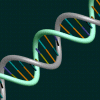
String Genome
Source Institutions
In this biology activity (page 5 of the PDF), learners use yarn and sticky labels to build a model of a DNA strand. They discover that DNA is very long, very skinny, and packs well into cells.

DNA and Histone Model
Source Institutions
In this activity, learners construct a 3-D paper model depicting how histone, acetyl and methyl molecules control access to DNA and affect gene DNA expression.

DNA Extraction from Wheat Germ
Source Institutions
DNA is the thread of life. Encoded in its genetic sequence is the information that makes each of us unique. This activity allows you to see long, stringy strands of DNA extracted from wheat germ.
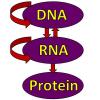
Protein Factory
Source Institutions
In this activity, learners take on the role of various parts of the cell in order to model the process of protein synthesis.
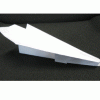
Evolution in Plane Sight
Source Institutions
In this activity, learners model directed evolution by making paper fly. Learners construct and fly paper airplanes.

Stem Cell Differentiation Game
Source Institutions
This game uses a modified Uno deck to review concepts related to stem cell research and diabetes.
